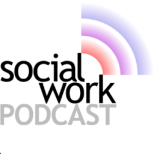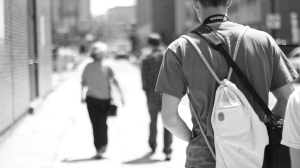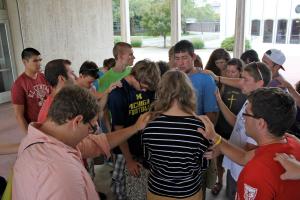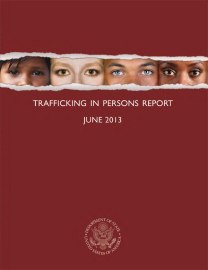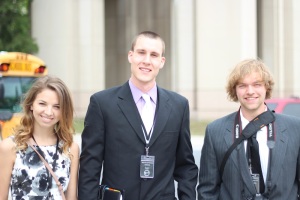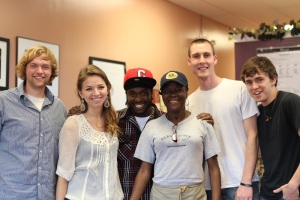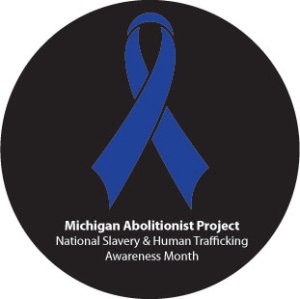“What should move us to action is human dignity: the inalienable dignity of the oppressed,
but also the dignity of each of us. We lose dignity if we tolerate the intolerable.”
— Dominique de Menil
Two thousand thirteen marks the 150th Anniversary of the Emancipation Proclamation, a historic executive order issued by President Abraham Lincoln that set the framework for abolishing slavery in the United States. With this monumental step as the start, slavery was made illegal in 1865 with the addition of the 13th Amendment—illegal, but not abolished.
Sadly, slavery still exists today. And it exists right in our own communities.
Today, the U.S. State Department estimates there are 20.9 million slaves throughout the world—more than when the Emancipation Proclamation was signed into order. And, of those 20.9 million slaves—a significant percentage are right here in Michigan.
But, it can be stopped. Organized criminals run the slave trade, but we—you, me, any person, the Church—need to be better organized than the slave owners. The more people who are aware of the issue, the more we can help uproot this atrocity.
At Michigan Abolitionist Project (MAP) we seek to do that. We exist to help others use their gifts and talents to help prevent and end modern slavery. In May 2011, MAP began its humble beginnings. It all started with a day of education and action and quickly led to monthly Community Group meetings, which still take place today. These meetings are an opportunity for people to learn more about modern slavery and find ways to respond.
And they have responded! In just over a year and a half, we now have committed volunteers throughout the state leading initiatives such as, community groups, community outreaches, a prayer initiative, a freedom marketplace, and a running team. There is even a team that produces a bi-annual awareness magazine called Unbound. And we’re also adding other areas, including corporate social responsibility. In fact, at the beginning of November, MAP held a conference in collaboration with Cooley Law School addressing this very topic.
Through all of these initiatives, we’re educating and raising awareness within businesses, churches, health care facilities, schools and social service agencies. And we’re equipping community members to go out into their communities and educate.
We have made great strides, but we have so much more to do. And we need your help. We need your commitment to stand with us and put an end to this abomination of human dignity.
With your gift to MAP, you can help us prevent and end modern slavery. Whether large or small every gift makes a difference. You can give online at: www.MichiganAbolitionistProject.org/Give. On the website you will also find a list of specific needs. If you would prefer to mail a check, please send to: Michigan Abolitionist Project, PO Box 541, Jenison, MI 49429-0541
We also invite you to partner with us in prayer. We publish a bi-monthly MAP Prayer Calendar with specific intentions to pray for the end of modern slavery. Email us for the current calendar and to be placed on the distribution list.
God continues to open doors, and we’re amazed at what He has done thus far. As we follow His lead, we couldn’t do any of it without supporters like you. In fact, thanks to a generous gift from friends of the ministry, MAP was able to recently lease office space, which allows us to be more effective in equipping volunteers and gives us a physical presence in the community. And we pray this space will be filled with not only the volunteer abolitionists who are at the core of who we are, but eventually with needed staff to help carry out the vision deeper and wider.
As we move into this advent season we are looking to the hope of freedom, justice and dignity for all. I thank you for your continued support and prayers not only for the mission of MAP, but for all those enslaved around the world.
In Christ,
Julie Slagter
Founder, Director
